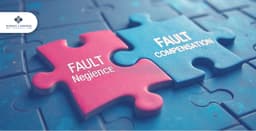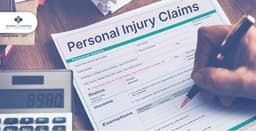
December 5, 2024
Can I Sue My Employer for Emotional Distress in Florida
As a lawyer who specializes in employment & personal injury issues, I've seen my fair share of people who are burnt out, stressed to the max, and just plain miserable because of their jobs. You know the feeling – the pressure to hit those deadlines, keep your boss happy, and deal with office politics can leave you feeling like you're about to explode.
And sometimes, it actually does lead to a meltdown. Heck, I remember this one client, who told me her boss would constantly yell at her in front of everyone. She said she'd come home in tears every night, her stomach in knots, and couldn't sleep a wink. That's when I knew things had gone way too far.
Now, Florida law does recognize that a bad work situation can mess you up emotionally. But suing your employer because you're stressed out isn't always as straightforward as you might think. There are rules and hurdles to jump through. So, let's talk about the "impact rule" (don't worry, it's not as scary as it sounds), and what kind of situations might actually give you a fighting chance in court.
Florida's Impact Rule (and Why It Makes Things Tricky)
So, what exactly is this impact rule? In Florida, it basically means that if you want to sue your employer for emotional distress, you typically need to prove something else too: a physical injury. That's right, you generally have to show that the stress from your job caused some kind of physical problem, like ulcers, headaches, or even sleep disturbances documented by a doctor.
The reason for this rule is a bit complicated, but the idea is to prevent frivolous lawsuits based solely on hurt feelings. It makes things tougher for employees who are suffering emotionally but haven't suffered any physical harm. This legal principle is not codified in a single statute but has been established through a series of Florida court decisions. (A foundational case is International Ocean Telegraph Co. v. Saunders, 14 So. 148 (Fla. 1893), where the court denied a claim for emotional distress based solely on a delayed telegram.)
Now, this doesn't mean there's no hope at all. We'll explore some exceptions to the impact rule and other situations where you might have a case in the next sections. But for now, remember the impact rule as the first hurdle you'll need to overcome if you're considering an emotional distress lawsuit against your employer in Florida.
When You Can Sue for Emotional Distress Without Getting Hurt (Exceptions to the Rule)

The impact rule might seem like a dead end, but there are actually a few exceptions where you can sue your employer for emotional distress alone, even without a physical injury. Here are some key situations to consider:
Outrageous Conduct: If your employer's actions go way beyond the pale of normal workplace stress, you might have a case. If your boss is subjecting you to constant sexual harassment, threats of violence, or some other form of outrageous behavior. In these extreme cases, Florida courts have recognized emotional distress claims even without a physical injury.
For instance, the case of Faruki v. Parsons Brinckerhoff Quade & Douglas, Inc., 746 So.2d 1081 (Fla. Dist. Ct. App. 1999) involved an employee who suffered emotional distress after her supervisor made repeated sexual advances and threats. The court found that the supervisor's actions were sufficiently outrageous to bypass the impact rule.
Retaliation: Let's say you report harassment or discrimination at work, and then your employer retaliates by making your life miserable. This could involve increased workload, unfair treatment, or even getting fired. In this scenario, the emotional distress caused by the retaliation itself could be grounds for a lawsuit.
Whistleblower Claims: If you blow the whistle on your employer for illegal activity, and they retaliate by causing you emotional distress, you might have a case under whistleblower protection laws.
You Can Add Emotional Distress to Other Lawsuits Against Your Employer
The Impact rule in Florida can make it tough to sue your boss just for feeling stressed out. But there might be another way to get some compensation for what you've been through. If you have a different kind of lawsuit against your employer, like for getting hurt on the job, you can also try to get compensation for the emotional distress on top of everything.
Think of it like this, if your employer's negligence caused you a physical injury, like a slip and fall accident at work. You'd likely file a personal injury lawsuit to recover medical costs, lost wages, and other damages related to the physical injury. But what about the emotional distress you experience from the accident – the anxiety, the fear, the sleep problems?
In this situation, you can add emotional distress as a separate damage in your personal injury lawsuit. This legal principle has also been affirmed in numerous court cases. (Particularly, in the case of Jones v. Winn-Dixie Stores, Inc., 697 So. 2d 557 (Fla. 1st DCA 1997), the court allowed a plaintiff to recover for emotional distress caused by a slip-and-fall accident at a grocery store, even though the physical injuries themselves were relatively minor.)
The same goes for other claims against your employer. If you can prove your employer discriminated against you or created a hostile work environment that resulted in a physical injury, emotional distress can be part of the damages you seek. This can significantly increase the potential compensation you receive. By including it as part of your damages, you're ensuring the court understands the full impact the situation has had on your life.
How to Show the Judge You're Really Stressed (Evidences)

Okay, so we've talked about the impact rule and some exceptions, but even when you have a case, proving emotional distress in court can be very difficult. Because emotions are subjective. Unlike a broken bone or a nasty cut, emotional distress isn't exactly something you can hold up in court and say, "See, judge, this is how messed up I am."
Sure, you can tell the judge you're feeling anxious, depressed, or constantly on edge. But how do you convince them it's serious and directly linked to your work situation?
Here's what can build your case:
Medical Records: Documentation from a therapist, counselor, or doctor is highly important. These records should show diagnoses related to emotional distress, like anxiety or depression, and ideally connect those issues to your work environment.
Journaling: Keeping a daily journal to document your experiences can be helpful. Note down specific events at work that caused you distress, how it made you feel physically and emotionally, and any changes in your behavior or mood.
Witness Statements: If colleagues or friends have noticed a change in you due to work stress, their written statements can add weight to your claim.
The more evidence you have, the stronger your case will be. Remember, the court needs to see a clear connection between your employer's actions and the emotional turmoil you're experiencing.
A Leap Of Faith
The most important thing, though, is you. Taking care of yourself needs to come first. Maybe that means finding healthy ways to chill out after work, talking to people who care about you, or even looking for a new job that doesn't make you want to pull your hair out. You deserve to feel okay, and hopefully this information helps you get there, both legally and personally.
Florida's legal stuff is confusing, especially when it comes to suing your boss about how stressed out you are. There are challenges to jump over, but there might be ways around them. Don't hesitate to reach out for help. Everyone needs a healthy and safe work environment, and I can help you fight for what you're entitled to.

































































